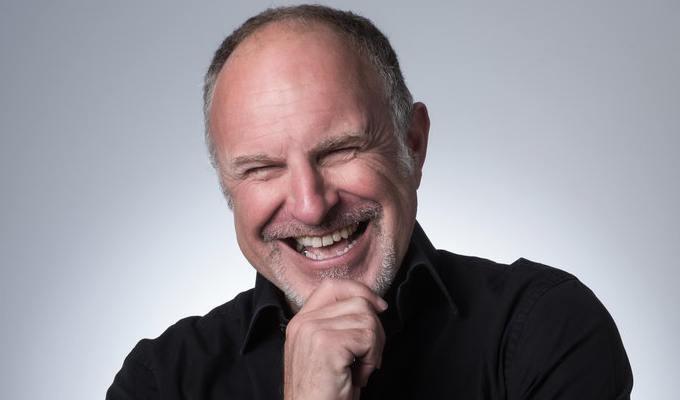by Eric Sykes
Eric Sykes gives you value for money with his memoirs. Not only does If I Don’t Write It, Nobody Will weigh in at a hefty 491 pages (well, at 82 years of age, there’s a long life to be fitted in), but it’s virtually two books in one.The first covers his pre-showbiz days, is an evocative picture of life in a simple Northern town, and of an ordinary young man’s experience of the war; while the second is the to-be-expected collection of anecdotes from the world of entertainment.
It’s the former that makes the most compelling reading. When Sykes was born in Oldham in 1923, it was a world far, far removed from modern life; his vivid recollections of tin baths, horse-drawn carts on the streets and old-fashioned toffee shops seem like the stuff of historic novel, but it is the life Sykes lived. True to cliché, he even got a job down t’mill, before the war gave his life a dramatic turn.
There is a rose-tinted romance in this poverty-stricken days. The wealth, as Sykes describes it, was in the honest, simple pleasures in life. But there is a tragedy to these early years, too.
Skyes’s mother, Harriet, died in childbirth - and he believes her spirit has been a guardian angel throughout his long life. It might not seem she was particularly vigilant, as Sykes appears uncommonly illness-prone and is deaf and now blind, but she certainly gives him the strength to overcome all this.
But good luck has rained down on him in many ways, too, not least of all during the war, when he was a radio operator with the RAF. Despite his apparent inability to stay with the right unit, and stumbling way ahead of the front line, he not only survived Hitler’s worst – but also found his new vocation.
Like many entertainers of his generation, he first trod the boards entertaining his fellow troops – even if he did so by deceit. Signing up for a revue, he cavalierly gave himself the fake name of Rick Allen, claimed he was a huge vaudeville star in civvy street with an acclaimed eight-minute drunk act. The CO bought it, even if his lie became very apparent in rehearsals. Sykes’ equally bold answer? To pretended he was a member of the successful close-harmony quartet The Four Aces, too.
Sykes wartime accounts are mostly jolly and matter-of-fact, any misery relegated to an afterthought. Even a visit with Denis Norden to the newly liberated Belsen concentration camp and all the horror is contained is dismissed within one sombre page. But this is a comedian’s autobiography, and we wouldn’t want to dwell.
His mother’s hand seems to have played its biggest role soon after Sykes’s demob, when he moved to London where cold, starving and jobless he stumbled upon his forces’ theatrical pal Bill Fraser in a dense peasouper. His old mucker, by now performing in the West End, immediately gave him a job as a comedy writer. It was an amazing coincidence.
From hereon in, the book – and Skyes’s life – enters its second half, almost totally disconnected to the first.
His rise through the comedy world – from stage vaudevillian to 128 episodes of Sykes And A… via writing Goon show scripts (until the unstable Spike Milligan threw a paperweight at him and later forced him off the show) - seems to happen without trace, as job simply follows job.
Readers looking for a thorough documentary account of post-war comedy should probably go elsewhere, for although Sykes was at the hub of it all, this is about personal anecdotes more than it’s about his impressive body of work.
The recollections are of varying degrees of interest. To Sykes, a great round of golf, or his daughter’s progress at the BBC seems to be of more importance than his work. The weakest sections of this book read like Christmas round-robin letters.
Not that there aren’t some quirky and surprising anecdotes here - including the time he valiantly stepped in to defend a woman from her abusive (and gun-wielding) husband, or that the first time he went deaf, following a 1961 operation, his hearing miraculously returned – but not before he was treated to a virtuoso bedside performance by guitarist John Williams, of which heard not one note.
Many of the best tales come at the expense of the humourless BBC executives Sykes treats with unconcealed disdain. He certainly uses the book to settle a few old scores.
In the early days, some faceless bureaucrats rejected a delightfully postmodern scene he wrote for Frankie Howerd because they obviously didn’t understand the very concept of a joke. And BBC executive Tom Sloan clearly couldn’t grasp Sykes’s style of underacting in his long-running sitcom. Sykes believes Sloan would have been happy to see the show stifled at birth, and resented the phenomenal success it subsequently enjoyed.
You can understand Sykes’s fury at the powers that be. Reading between the lines, the comedian comes over as a stubborn old goat, but the suits are usually worse. A series he filmed with perennial screen sister Hattie Jacques was wiped out of sheer spite following a row between Sykees and his producer – because BBC comedy chief Michael Mills wanted to show emphatically who was boss.
Not that he’s a stranger to more public controversy. He starred in he Johnny Speight-scripted sitcom Curry And Chips opposite a ‘browned-up’ Spike Milligan, but the book makes little mention of the accusations of racism hurled at it. He and the marvellously moustachioed Jimmy Edwards also caused a stir when they toured colonial Rhodesia and voiced their support for Ian Smith – though here Sykes concentrate so much on defending himself, you’re left unaware what exactly he was accused of.
But you can’t blame the man for bearing a grudge, if his career with the BBC ended as ignominiously as he recounts. It happened the very day after the Montreux festival had recognised his contribution to television, when he went proudly to meet BBC head of light entertainment Bill Cotton. With the applause of the previous night still ringing in his ears, he produced ideas for new series with a flourish, expecting the Beeb to leap at the chance. Instead, Cotton said only: ‘Your day’s gone Eric, we’re now into alternative comedy.’
Alternative comedy ultimately never killed off a gentler kind of comedy; the BBC still has its Last Of The Summer Wines and My Familys, and such a unceremonious ending to a long and successful corporation career is a disgrace. Still, it’ll take more than a rude dismissal to keep Sykes down – indeed, he’s in the latest Harry Potter film.
These memoirs reveal much his personality and his background, and are told in the sort of evocative prose you might expect from one of this country’s most prolific comed writers. But it’s slightly unfortunate he plays down his precise contribution to the British comedy scene. Maybe because he hasn’t written that, someone else should.
Eric Sykes: If I Don't Write It Nobody Else Will is published by Fourth Estate at £18.99. Click here to order it from Amazon.
Published: 27 Jun 2006






